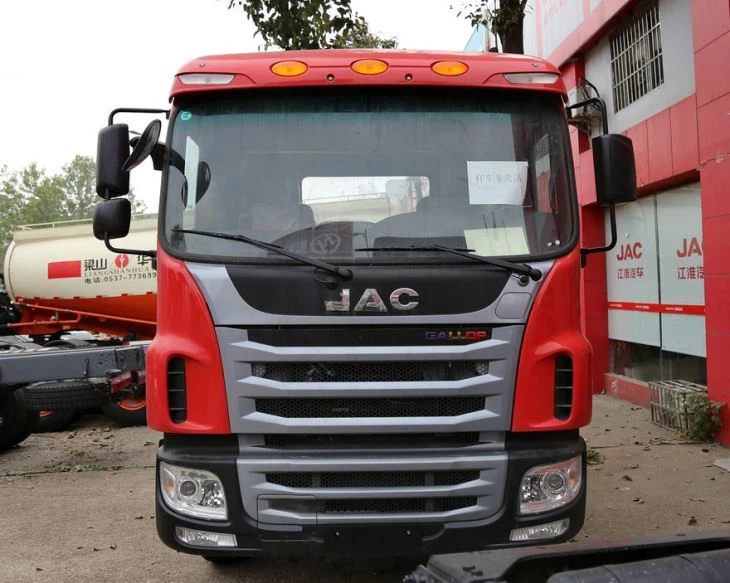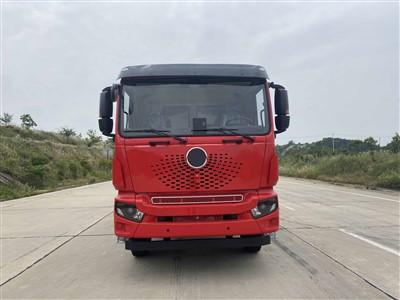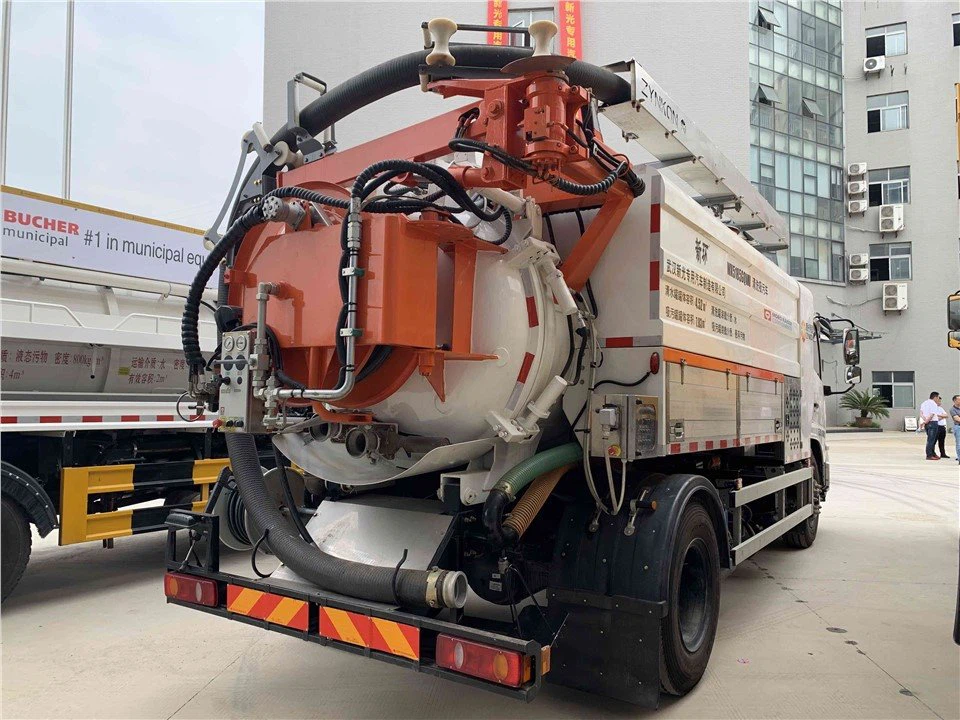What is a Wrecker Tow Truck? Understanding the Essential Vehicle for Roadside Assistance

Introduction
In an age where vehicles dominate our roads, the need for reliable roadside assistance has never been more critical. Enter the wrecker tow truck, a vital vehicle designed to help drivers in need. This comprehensive article will delve into the complexities of wrecker tow trucks, exploring their types, functions, and best practices for use. Whether you’re a curious motorist or considering a career in towing, this guide will furnish you with essential knowledge.
What is a Wrecker Tow Truck?
A wrecker tow truck is a specialized vehicle equipped to transport disabled vehicles. Unlike ordinary tow trucks, wreckers feature extra equipment designed to handle complex towing tasks safely and efficiently. These vehicles play a crucial role in emergency services, helping to clear accidents, recall abandoned vehicles, and assist motorists who experience breakdowns.
The Anatomy of a Wrecker Tow Truck
Wrecker tow trucks consist of several components, each contributing to their unique capabilities. Primary elements include:
- Chassis: The base frame that supports the truck.
- Towing Boom: The arm used to lift and tow vehicles.
- Winch System: A cable mechanism that helps pull vehicles onto the flatbed.
- Flatbed or Dolly: A platform or wheels that support the vehicle during transport.
- Lighting and Signs: Essential for visibility during roadside operations.
Different Types of Wrecker Tow Trucks
Understanding the different types of wrecker tow trucks is essential for knowing which one suits a specific towing situation. The main types include:
1. Flatbed Tow Trucks
Flatbeds have a long, flat platform at the rear, making them suitable for transporting vehicles securely. These trucks allow for the entire vehicle to be loaded onto the bed, minimizing potential damage.
2. Hook and Chain Tow Trucks
These older models utilize a hook and chain to lift vehicles by the axles, anchoring them in place. While effective, they can lead to increased wear on the towed vehicle, making them less popular in modern towing.
3. Wheel Lift Tow Trucks

Wheel lifts can securely lift vehicles by their wheels, allowing for safer towing without damage to the vehicle’s undercarriage. They efficiently transport both front-wheel and rear-wheel drive vehicles.
4. Integrated Tow Trucks

Integrated wreckers combine a towing boom and wheel lift into one unit, offering versatility for diverse towing situations. These trucks are ideal for heavy-duty tasks and challenging tows.
5. Heavy-Duty Tow Trucks
Heavy-duty wreckers are designed for larger vehicles, such as buses and trucks. They feature robust equipment and high towing capacities, making them essential for commercial roadside assistance.
Common Uses of Wrecker Tow Trucks
Wrecker tow trucks serve various purposes, including but not limited to:
Emergency Towing
When a vehicle breaks down unexpectedly or after an accident, a wrecker tow truck can swiftly respond, ensuring the vehicle is removed from the roadway to prevent further incidents.
Accident Recovery
In the event of an accident, wreckers can efficiently recover vehicles from difficult locations. The winch system allows for lifting damaged cars from ditches or wreckage piles.
Abandoned Vehicle Removal
Local authorities often enlist towing companies to remove abandoned vehicles that obstruct roadways or parking areas. Wreckers are equipped for swift removal.
Repossession
Tow trucks are frequently utilized for the repossession of vehicles due to unpaid loans. Licensed repossession agents utilize wreckers for safe, legal removal.
Support for Disabled Vehicles
Whether it’s a flat tire, engine failure, or needing fuel, wrecker tow trucks provide assistance to motorists facing breakdowns. They can transport vehicles to service stations or mechanics.
How to Choose the Right Wrecker Tow Truck
Choosing the appropriate wrecker tow truck depends on various factors, including:
1. Weight Capacity
Different wrecker models have varying weight capacities. It’s essential to select a truck that can safely handle the weight of the vehicle being towed.
2. Type of Towing Needed
Depending on the vehicle type (e.g., sedan, SUV, or heavy truck), you should choose a wrecker that matches the towing requirements.
3. Distance and Terrain
Consider the distance the vehicle needs to be towed and the terrain of the route. Some wreckers perform better on rough terrain than others.
4. Local Regulations
Familiarize yourself with local towing laws and regulations, as they can influence which types of wreckers are permitted.
Best Practices for Operating a Wrecker Tow Truck
Operating a wrecker tow truck requires training and awareness of safety practices. Here are some best practices:
1. Follow Safety Protocols

Always wear safety gear and ensure the area is secure before towing. Use road flares and warning signs to alert other drivers.
2. Keep Equipment Maintained
Regular maintenance of the wrecker and towing equipment is essential to ensure safety and capability. Check brake systems, hydraulic functions, and lights routinely.
3. Communicate Clearly
Effective communication with both the vehicle owner and your team is crucial for smooth operations and safety.
4. Use Technology Wisely
Incorporate modern technology like GPS and towing software to improve efficiency and planning for towing jobs.
The Economic Impact of Towing Services
Towing services play a critical role in local economies. Their services create jobs, support the automotive repair industry, and promote traffic safety:
Job Creation
The towing industry generates employment opportunities for drivers, mechanics, and administrative staff, contributing to overall economic stability.
Traffic Safety
By removing disabled or abandoned vehicles, tow services help maintain clear roadways, which ultimately reduces traffic congestion and increases safety.
Challenges in the Towing Industry
The towing industry also faces several challenges, including:
1. Increased Competition
With a growing number of towing companies, competition can lead to price wars, impacting profitability.
2. Regulatory Changes
New regulations can increase operational costs, with businesses needing to adapt quickly to comply with safety and licensing standards.
3. Public Perception
Negative perceptions about towing services can arise from disputes over pricing and service quality. Building trust and transparency is essential.
Maintenance and Care for Wrecker Tow Trucks
Proper maintenance ensures the longevity of wrecker tow trucks and their reliability in emergencies. Key maintenance tips include:
1. Regular Inspections
Conduct regular inspections of towing mechanisms, brakes, lights, and hydraulic systems to ensure everything functions properly.
2. Fluid Checks
Regularly check and replace fluids, including oil, transmission fluid, and coolant, to prevent breakdowns during operations.
3. Tire Maintenance
Maintain appropriate tire pressure and tread depth to ensure safety and stability while towing heavy loads.
4. Cleaning
Regularly clean the wrecker to prevent rust and damage, ensuring all components stay in optimal working condition.
FAQ Section
1. What is the average cost to tow a vehicle with a wrecker tow truck?
The cost for towing can vary widely based on distance and local regulations, typically ranging from $50 to $150 for local tows, with additional fees for mileage.
2. Do wrecker tow trucks require special licenses?
Yes, in many states, tow truck drivers are required to obtain special licensing and certifications to operate wrecker tow trucks legally.
3. How long does it take for a wrecker truck to arrive after a call?
Response times can vary based on the location and time of day, but on average, wrecker services aim to arrive within 30 minutes to an hour.
4. Can a wrecker tow truck tow multiple vehicles at once?
Standard wrecker tow trucks can typically only tow one vehicle at a time, though specialized models may handle multiple light vehicles under certain conditions.
5. Is it safe to sit inside my vehicle while being towed?
Safety professionals generally advise against remaining in your vehicle during towing operations, as it could lead to accidents or injuries.
6. How do I know if a towing company is reputable?
Research online reviews, check for licenses and certifications, and ask for recommendations from friends or local organizations to ensure you choose a reputable towing service.
